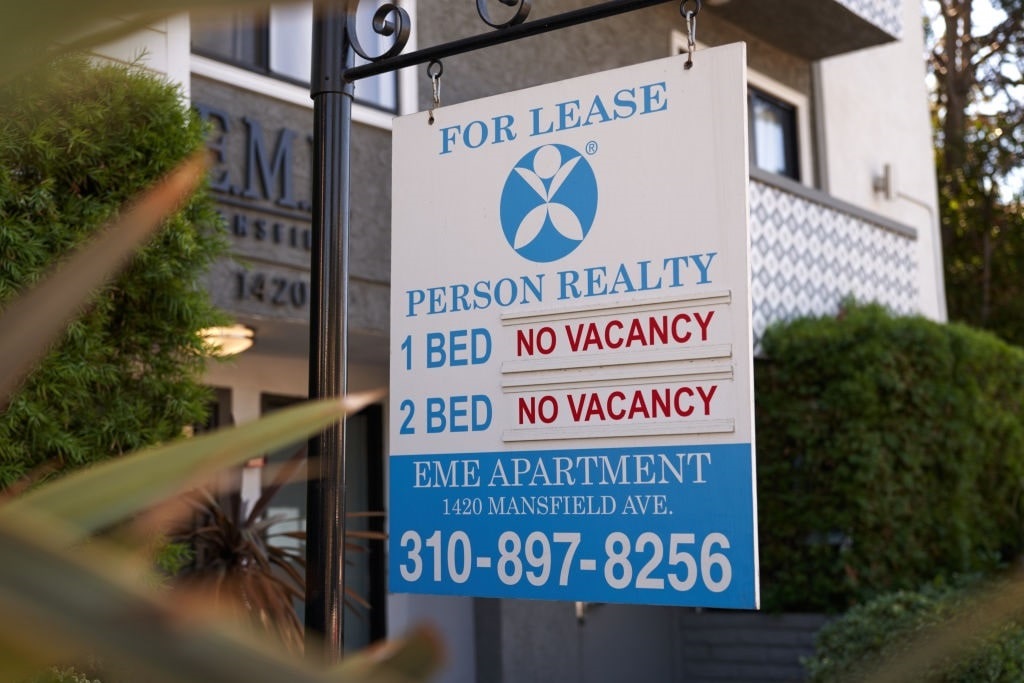The United States economy is enduring an affordability crisis on many fronts, from housing to utilities to food. Bureau of Labor Statistics (BLS) data show that housing represented about one-third of consumer expenditures in 2022 and 2023, followed by transportation (17%) and food (13%). Shelter costs have significantly outpaced income gains since the coronavirus pandemic, leaving millions of Americans vulnerable. But the public should not worry because federal and state governments are doing all they can to house illegal immigrants. Wait, what?
Housing Affordability Crisis
 For only the second time since May 2023, existing home sales climbed 3.1% in January, totaling a higher-than-expected 3.97 million units, according to new data from the National Association of Realtors (NAR). Existing home sales statistics are vital to understanding what transpires in today’s real estate market. Indeed, new homes are exchanging hands more substantially than existing residential properties. This is because when the Federal Reserve slashed interest rates to nearly zero, creating a climate of rock-bottom mortgage rates, families scooped up cheap housing supply and locked in these single-detached houses with 30-year 3% fixed-rate mortgages. There is little incentive to erect for-sale signs since they would acquire a more expensive home at a higher rate.
For only the second time since May 2023, existing home sales climbed 3.1% in January, totaling a higher-than-expected 3.97 million units, according to new data from the National Association of Realtors (NAR). Existing home sales statistics are vital to understanding what transpires in today’s real estate market. Indeed, new homes are exchanging hands more substantially than existing residential properties. This is because when the Federal Reserve slashed interest rates to nearly zero, creating a climate of rock-bottom mortgage rates, families scooped up cheap housing supply and locked in these single-detached houses with 30-year 3% fixed-rate mortgages. There is little incentive to erect for-sale signs since they would acquire a more expensive home at a higher rate.
In addition, when people cannot purchase a home, they rent. The challenge is that rents are far above pre-crisis levels and scarcity manufactures an environment of fierce competition. Since illegals will almost certainly rent apartments, US citizens are fighting for units against each other and migrants.
Politicians believe that subsidizing illegals will eventually resolve this dilemma.
Free Housing for Illegals
Across the pond, the UK housing market is witnessing a new trend of local governments issuing compulsory buy orders so they can use these private properties to house single male migrants. This was discovered after local media reported on an elderly couple who were told they had to give up their home so asylum seekers could be accommodated amid a housing shortage. The Northamptonshire council in question later apologized, explaining the order was meant only for properties that were presently unused. According to the couple, a council official explained that such letters are now sent automatically to any property that records reflect might be currently vacant.
This has yet to happen in the United States – for now – but governments are adopting other models involving taxpayer dollars. For example, New York City is paying more than a dozen hotels in the Bronx, Brooklyn, and Queens $77 million to house migrants. Illegals are receiving free hotel rooms despite the city’s leadership claiming it is running out of space. This is in addition to Mayor Eric Adams handing out $53 million in pre-paid debit cards to people currently provided with complimentary accommodations.
Elected officials use other tools to ensure migrants are fed, clothed, and housed.
Over in Maine, local news media reported that the State Housing Authority is extending migrants up to two years of free rent in new apartments. Once they receive work permits and obtain employment, they must pay 30% of the monthly rent. This past fall, it was reported that Illinois provided up to $9,000 in rental assistance to migrants. House and Senate lawmakers in Massachusetts approved $250 million for migrant housing after emergency shelters reached capacity.
Rather than send out compulsory buy orders, Michigan asked residents to please kindly house migrants with a cherry on top. Officials announced plans to convince volunteers to commit for 90 days and offer a range of support mechanisms, such as welcoming them at the airport, preparing for housing, enrolling children in school, and helping individuals find jobs. It is unclear if any of the politicians are participating in this program.
At the federal level, the current administration requested billions in funding from Congress last summer to construct new housing for migrant families. Axios reported at the time: “Migrant family members would be able to come and go as they please during the day, but would be required to check in and stay the night on the campus.”
Basic Economics
One of the chief tenets of economics is that if you subsidize something, you get more of it. It is the Cobra Effect Theory, which describes a scenario where an incentive designed to solve a problem ends up making it worse by rewarding people who will exacerbate the issue. Governments might not realize it, but they are incentivizing scores of people to sneak across the border. If families from Latin America think US roads are paved with solid gold and politicians are Santa Claus, why would they not trek hundreds or thousands of miles for a chance at the jackpot? Of course, the American people are directly and indirectly stuck with the multi-billion-dollar bill.




